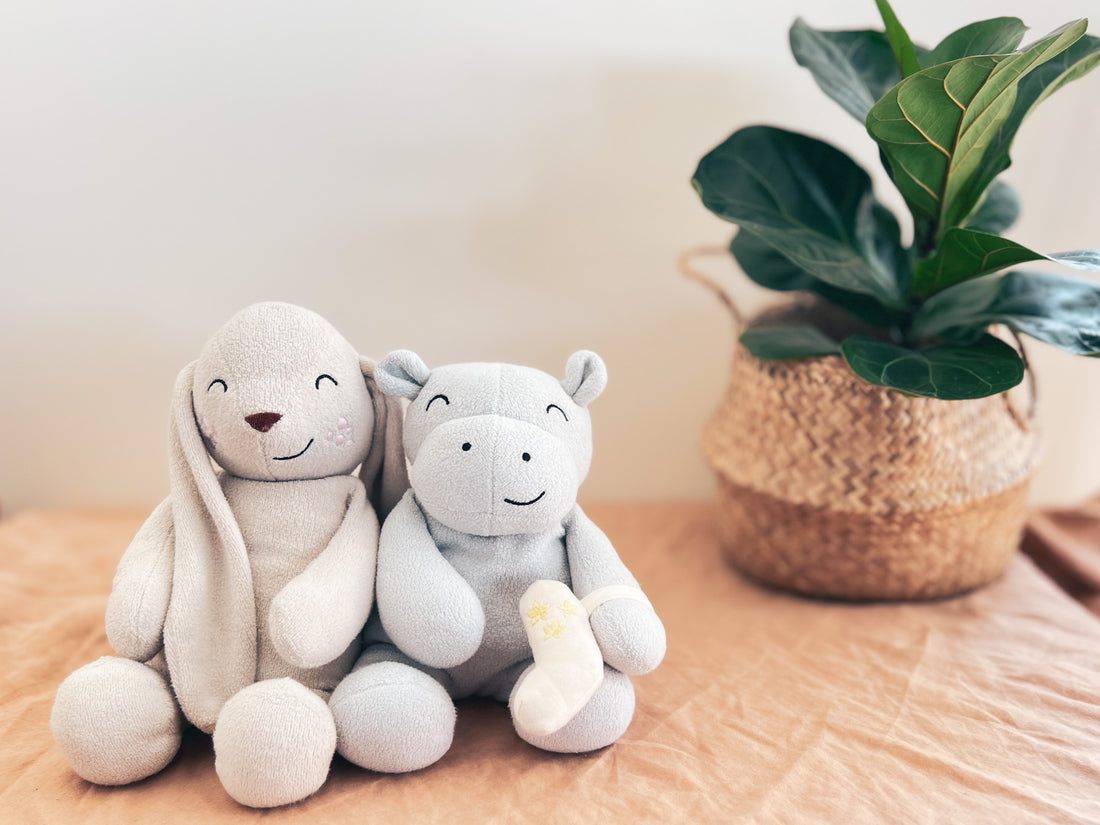
How Stuffed Animals Can Help Kids Learn About Health
Share
When it comes to helping children understand health, finding the right tools can make all the difference. At Carabie, we’ve discovered that combining education with play creates a powerful opportunity to teach children about their own or others’ medical journeys in a way that’s comforting, relatable, and even fun.
Our health-based stuffed animals are designed to do just that—open the door to meaningful conversations while fostering empathy, understanding, and confidence. Here’s why stuffed animals are a fantastic resource for teaching kids about health conditions.
1. They Make Complex Topics Relatable
Explaining a medical condition to a child can feel daunting, especially when words alone fall short. Stuffed animals bridge that gap by serving as tangible, relatable tools.
For instance, Carabie’s asthma-friendly hippo comes with a plush inhaler and a storybook that explains asthma in simple, child-friendly language. The hippo shows kids how using an inhaler can be part of daily life, empowering them to manage their own condition with confidence and ease.
2. They Foster Empathy and Inclusivity
Health conditions can sometimes make children feel isolated or misunderstood. A stuffed animal with visible traits or accessories that represent a condition—like our bunny with eczema and its embroidered rash—creates opportunities for kids to see themselves or others represented in their toys.

For children without these conditions, these toys offer a gentle introduction to inclusivity, teaching them to appreciate and empathize with the challenges others face. Play becomes a safe space for kids to ask questions, learn, and practice kindness.
3. They Ease Medical Fears
Doctor visits, treatments, and medical devices can be intimidating for young children. Stuffed animals provide a non-threatening way to normalize these experiences.

Imagine a child role-playing with their hippo’s inhaler or giving the bunny’s rash a soothing “cream” during playtime. These activities allow kids to process their feelings, rehearse treatments, and build resilience. What once seemed scary becomes an everyday part of their stuffed friend’s life—and, by extension, theirs too.
4. They Spark Conversations Between Kids and Adults

Stuffed animals act as conversation starters, helping children and adults navigate tricky topics together. When a child asks, “Why does my hippo need an inhaler?” parents and caregivers have an easy entry point to explain what asthma is and why managing it is important.
Carabie’s accompanying picture books extend this dialogue, combining storytelling with educational tidbits that answer common questions kids might have about their health.
5. They’re Comforting Companions
Dealing with a health condition can be an emotional journey for kids. Having a cuddly, understanding companion by their side can provide immense comfort.
Our stuffed animals aren’t just toys—they’re friends who “get it" and they are always ready with a hug and a reminder that kids aren’t alone in their experiences.

Making Play a Learning Experience
At Carabie, we believe that every child deserves to feel seen, understood, and supported. Our stuffed animals and matching books are designed to make health education accessible and enjoyable for kids and their families. Through play, we can empower children to embrace their uniqueness, manage their health with confidence, and build empathy for others.
Shop our collection of inclusive, health-based stuffed animals here. Together, let’s make playtime meaningful and inspiring.